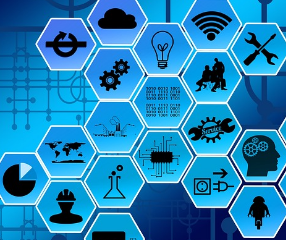Exploring How Digital Transformation Will Enhance Customer Experience in 2025 and Beyond
Introduction to Digital Transformation
The question of how digital transformation will enhance customer experience in 2025 is central to the strategies of forward-looking businesses. Digital transformation refers to the integration of advanced digital technologies into every aspect of business operations, fundamentally reshaping how companies deliver value. As we move toward 2025, organizations are leveraging AI, IoT, cloud computing, and automation to streamline processes, engage customers more effectively, and respond faster to market demands.
For customers, this transformation translates into seamless interactions, personalized experiences, and faster, more reliable service. Businesses that prioritize digital transformation not only improve operational efficiency but also create meaningful connections with their consumers, ensuring loyalty and long-term growth.
Current Trends in Customer Experience
Customer experience (CX) is evolving rapidly, shaped by emerging technologies and rising expectations. Personalization powered by machine learning, omnichannel engagement, and real-time support are key trends. Customers now demand seamless service whether they interact through social media, mobile apps, or in-store visits. This trend underscores why digital transformation is critical for delivering superior customer experiences in 2025.
Predicted Technologies Influencing CX by 2025
By 2025, several technologies will redefine CX:
Artificial Intelligence (AI): Personalized recommendations, predictive service, and intelligent chatbots.
Augmented & Virtual Reality (AR/VR): Immersive shopping and brand experiences.
Internet of Things (IoT): Smart devices enabling proactive service and real-time updates.
5G Connectivity: Faster, more reliable digital interactions supporting AR/VR and video-rich engagement.
Together, these technologies will raise the bar for customer expectations while giving businesses tools to deliver at scale.
The Role of Data Analytics
Data analytics sits at the heart of how digital transformation will enhance customer experience in 2025. By harnessing big data and predictive analytics, businesses can anticipate customer needs, personalize offerings, and deliver seamless support. Real-time insights allow organizations to make agile decisions that improve satisfaction and loyalty.
Omnichannel Experience
Digital transformation ensures that customers can switch between touchpoints—websites, apps, chat, or stores—without friction. Omnichannel consistency builds trust and loyalty while enhancing the overall brand experience.
Automation and AI in Customer Interaction
From chatbots to self-service portals, automation reduces response times, lowers costs, and provides 24/7 availability. As automation becomes smarter, it will deliver more human-like, personalized interactions.
The Importance of Personalization
Personalization will be a defining factor in customer satisfaction by 2025. Businesses that leverage AI and machine learning to tailor offers, content, and support will create deeper emotional connections and foster loyalty.
Challenges in Implementing Digital Transformation
Despite its potential, digital transformation comes with hurdles: employee resistance, training gaps, and cybersecurity risks. Overcoming these challenges requires strong leadership, change management, and investment in digital literacy.
Looking Ahead: Beyond 2025
The future of CX will be shaped by immersive technologies, ethical data practices, and agile innovation. Businesses that balance cutting-edge tech with transparency and adaptability will win customer trust and loyalty.
Conclusion
Understanding how digital transformation will enhance customer experience in 2025 is vital for businesses aiming to remain competitive. By adopting AI, AR/VR, IoT, and data-driven personalization, companies can create seamless, responsive, and meaningful interactions. While challenges exist, organizations that embrace innovation and customer-centric strategies will thrive in the next digital era.









